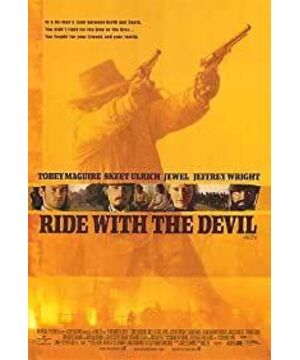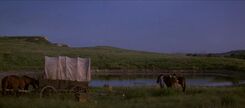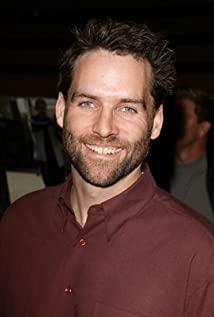In the 1860s, the only civil war in the history of the United States, the north and the south were divided by the Missouri River as the boundary, and the south fought a war with the north, which represented industrial democracy and freedom, in the name of defending the tradition and maintaining feudal slavery. History is the history of the self-proclaimed righteous, and the formal history books are the clear borders of Chu, Han, and Han. Except for "Gone with the Wind", Ang Lee is one of the few directors who view this history from a southern perspective. In this impossible battle, he gently describes their despicable and lacking friendship and love. All wars in the end are not just a clash of two ideas, but gradually transformed into a testament to the value of the honor and ambition of the army, the mutual revenge brought about by the spread of hatred, and the rejection of infidels in a collective unconscious state. with destruction. Yet it is the slaughtering western pioneers who became the ultimate national heroes, which is incredible. From the perspective of social history, such a fact is really understandable. Within the scope that the productive forces cannot accommodate, all resistance will inevitably become the past. But as an artist with a mission, Ang Lee seems to always seek a middle way for some emotions that exist but are not recognized, such as the betrayal in Lust and Caution, the relationship between people in "Ice Storm" alienation and indifference in relationships. However, in reality, although Enlightenment thought has promoted the great improvement of social productivity, it seems that people instinctively cannot restrain a primitive emotion calling for a natural turn to modern art. reconcile. In his autobiography "A Dream of a Movie in Ten Years of Sleep", he once said: "He was attracted by the embarrassing temperament in the original novel." This embarrassment is reflected in his films not only the difference between Chinese and Western cultures, but also the difference between Chinese and Western cultures. In the face of the embarrassment of many things in life that I don't want but have to, in his words, "I can't escape everything in the East, and I don't accept everything in the West." I think this is to a large extent his character. Medium sensitive and gentle soil. Sensitive people, mostly suspicious and kind, always seem to find a moderate and acceptable solution at the end of all his films, the "surrender" of the old father in "The Wedding Banquet", or a The field of love dispels the suspicion. But for real life, to rewrite a classic line - is life always like this? Or was it only when I was a kid? - not always
View more about Ride with the Devil reviews











